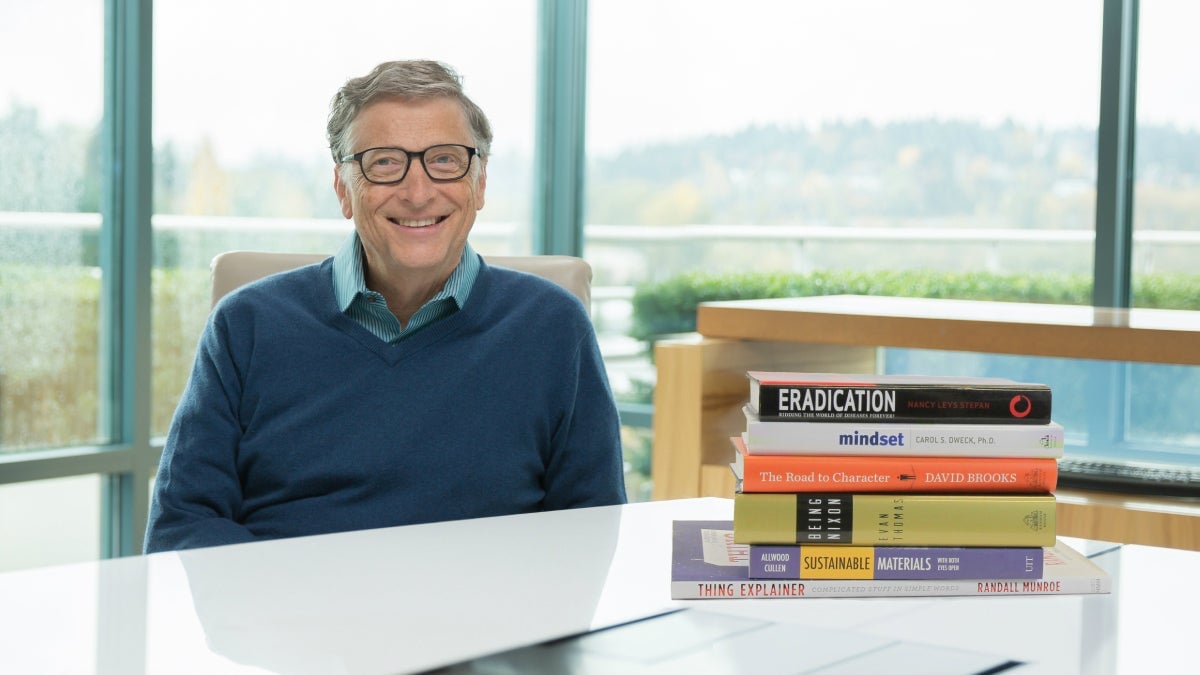These are the best books Bill Gates read in 2015
When Bill Gates isn’t convincing the world’s billionaires to give their fortunes away, he’s known to curl up with a good book or ten. For the past several years the philanthropist and Microsoft co-founder has published a year-end list of favorite books on his personal blog, and this year he’s been no less voracious as a reader.


When Bill Gates isn’t convincing the world’s billionaires to give their fortunes away, he’s known to curl up with a good book or ten. For the past several years the philanthropist and Microsoft co-founder has published a year-end list of favorite books on his personal blog, and this year he’s been no less voracious as a reader.
In 2015, Gates found his reading selection oriented toward “how things work”—whether it’s an explanation of how physical processes unfold, or how humans developed our values. Drawing on nonfiction reads published from 2006 to 2015, Gates presents his picks and reviews from this year:
Thing Explainer: Complicated Stuff in Simple Words
, by Randall Munroe
Randall Munroe, creator of the popular xkcd webcomic, explains difficult processes and concepts with the 1,000 most commonly used English words. Gates, who’s a longtime fan of Munroe’s work, writes of his own struggle with jargon:
“Terminology is an occupational hazard of philanthropy. I’ve found this is especially true if you work in an area like health. It is not unusual to be discussing the latest disease research and hear someone throw around words like serum and in vitro (and more complicated ones). Over the years I’ve gotten comfortable with all the terms, but at first I had to keep reminding myself: Serum just means blood without the red and white cells. In vitro just means ‘in the glass’—as in test tubes. I still go through that process today with different subjects.”
(Read an excerpt of Thing Explainer.)
Being Nixon: A Man Divided
, by Evan Thomas
Gates praises Evan Thomas’s balanced and nuanced approach to the oft vilified Richard Nixon. In addition, he writes:
“I was a little surprised to learn what a bad manager Nixon was. Although it doesn’t compare to his other failings, Nixon’s management style offers some good reminders of how not to run a team. He avoided conflict at all costs. His staff frequently left meetings with diametrically opposed views on what he had just asked them to do. Or he would be crystal-clear about what he wanted, while actually expecting his staff to ignore his demands.”
Sustainable Materials With Both Eyes Open
, by Julian M. Allwood and Jonathan M. Cullen, et al.
The academic book on rethinking our use of commodities like steel and aluminium, which account for nearly 30% of global emissions, was eye-opening for Gates. How we consume is not the only important question in fighting climate change:
“The authors argue that when a product—say, a building or car—is discarded, the materials in it are often still usable. (Reusing is much better than recycling, because recycling something takes less than half as much energy as it took to make the thing in the first place.) If you throw out your old refrigerator, the steel is probably still in good condition. So is the steel in old buildings, as long as there hasn’t been a fire or earthquake.”
Eradication: Ridding the World of Diseases Forever?
, by Nancy Leys Stepan
Epidemiology and vaccines are a big focus of the Gates Foundation, so it’s not surprising that Gates should read historian of medicine Nancy Leys Stepan’s book on Fred Soper, who tried to eradicate yellow fever, typhus, and malaria throughout his career. He writes:
“Soper’s biggest mistake—and on this I agree with Stepan—was believing that scientists had already learned everything there was to learn about mosquitoes and malaria. Because of that he spent a lot of time and money—and made life harder for a lot of people—trying to eradicate a disease that actually was not understood well enough. Scientists didn’t have enough of the right data. Soper didn’t have a deep enough understanding of human behavior and international politics.”
Mindset: The New Psychology of Success
by Carol Dweck
Carol Dweck‘s classic psychology book, Mindset, presents the concepts of growth mindsets versus fixed mindsets. Gates writes:
“My only criticism of the book is that Dweck slightly oversimplifies for her general audience. Contrary to the impression that Dweck creates here (but probably not in her academic papers), most of us are not purely fixed-mindset people or growth-mindset people. We’re both. When I was reading the book, I realized that I have approached some things with a growth mindset (like bridge) while other things in a fixed mindset (like basketball).
The greatest virtue of the book is that you can’t help but ask yourself things like, ‘Which areas have I always looked at through a fixed-mindset lens?’ and ‘In what ways am I sending the wrong message to my children about mindset and effort?'”
The Road to Character
, by David Brooks
Reflecting on his 60th birthday, Gates writes admiringly of this quote in Brooks’s book, by the novelist Frederick Buechner: “At what points do my talents and deep gladness meet the world’s deep need?” Says Gates:
“I like that question a lot. It’s the kind of question we can ask any day, not just on those milestone birthdays. It can remind us to pay attention to our neighbors around the world.”